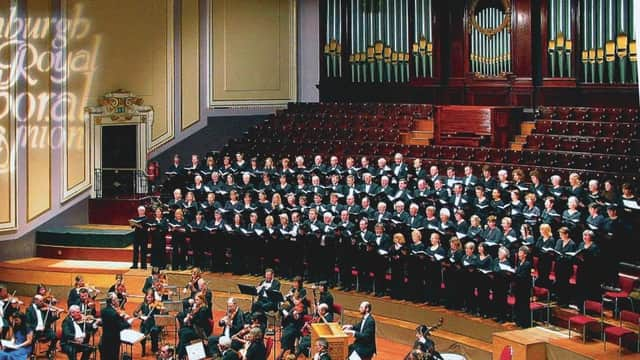James MacMillan: Let's get Scotland singing again


In a speech at the TED Summit in Edinburgh last year, First Minister Nicola Sturgeon argued that quality of life for people in Scotland should be as important as economic growth, and that we should redefine what it means to be a successful nation where “collective wellbeing” is as fundamental as GDP. This came after GDP, a measure of goods and services, has been criticised for undervaluing quality of life and at a time when Scotland fell five places in an index of social and economic wellbeing in developed countries.
One practical way of achieving the First Minister’s objectives is to Get Scotland Singing Again. This is a campaign to bring choral singing back to our communities as soon as possible after a lockdown, a period which has brought massive cultural damage. Choral singing is a force for good. It has no barriers to participation and can provide life-long fulfilment to participants through a sense of purpose and belonging. It promotes teamwork and social skills, and enhances individual wellbeing.Scotland was seeing an evolution in its rich choral tradition before lockdown, and various research projects have suggested that singing in a choir might benefit an individual’s mental health.
Advertisement
Hide AdAdvertisement
Hide AdUniversity of Bath researchers have also reported that choral singers considered their choirs to be a more coherent or “meaningful” social group than team sport players considered their teams. Findings suggest that membership of a choir may be a more important influence on psychological wellbeing than most other social activities. These findings may have practical implications for the use of choral singing as an intervention in creating happier people in healthier societies.
The University of Gothenburg found that choral singing promoted practical wellbeing. This may be because singing demands a slower than normal respiration, which may in turn affect heart activity. Coupling of heart rate variability to respiration is called Respiratory Sinus Arrhythmia, which has a subjective and biologically soothing effect, and is beneficial for cardiovascular function. Scientists have been able to show that song structure, respiration and heart rate are connected.
Unison singing of regular song structures makes the hearts of the singers accelerate and decelerate simultaneously, with implications for health and group cohesion.
Research has shown that there are significant mental health benefits from choral singing. One study, whose participants had been diagnosed with depression, found that some of them were no longer depressed following their involvement with a choir. Other studies have shown that group singing boosts oxytocin levels, which help control stress and anxiety.
In 2012, Cardiff University researchers found that lung cancer patients involved in choral singing had greater expiratory capacity than patients who were not. One participant in a choir set up for people with Parkinson’s disease explained how his voice had been strengthened, despite receiving a diagnosis five years earlier. Deep breathing and the extended use of the vocal cords, so central to choral singing, could explain this improvement.
Recent scientific evidence is casting doubt on the anecdotal view that singing is unsafe. For example, Professor Christian Kähler and Dr Rainer Hain of the Institute of Fluid Mechanics and Aerodynamics at Bundeswehr Munich University in Germany recently carried out tests to weigh up the safety of singing and music-making in a post-coronavirus world – finding that singers transferred droplets only up to a 0.5m distance, so it was unlikely for the virus to be passed on.
Their conclusion is that: “The low spread of air movement is not surprising, since singing does not expel a large volume of air in jerks like coughing or sneezing.” Researchers at the University of Freiburg express necessary caution on the matter, but are also contributing to the establishment of a road map to bring choral music back.
Advertisement
Hide AdAdvertisement
Hide AdOngoing research by Public Health England at Salisbury Cathedral is likely to add to this hope and optimism. This is the moment that the music world has been waiting for – the green light to start building towards the vital resumption of public performances. And this gives some urgency to our hope that the Scottish Government will be able to support our desire to Get Scotland Singing Again, which would enable a staged return to singing, correlated to the phases of Scotland’s route map, informed by the latest scientific research and supported by a robust and balanced assessment of risk.
The implications of choral activity for our collective mental and physical health and quality of life may be significant in how Scotland redefines what it means to be a successful nation.
A message from the Editor:
Thank you for reading this story on our website. While I have your attention, I also have an important request to make of you.
With the coronavirus lockdown having a major impact on many of our advertisers - and consequently the revenue we receive - we are more reliant than ever on you taking out a digital subscription.
Subscribe to scotsman.com and enjoy unlimited access to Scottish news and information online and on our app. With a digital subscription, you can read more than 5 articles, see fewer ads, enjoy faster load times, and get access to exclusive newsletters and content. Visit https://www.scotsman.com/subscriptions now to sign up.
Joy Yates
Editorial Director